UP TO THE MINUTE
Melanie A. Butler - Updating the Tariff Story - PODCAST TRANSCRIPT
July 29, 2025 at 12:00 p.m.Editor's note: The following is the transcript of a live interview with Melanie A. Butler, director of trade and transportation compliance at Sherwin-Williams. You can read the interview below or listen to the podcast.
Intro: Welcome to Roofing Road Trips, the podcast that takes you on a thrilling journey across the world of roofing. From fascinating interviews with roofing experts to on-the-road adventures, we'll uncover the stories, innovations and challenges that shape the rooftops over our heads. So, fasten your seatbelts and join us as we embark on this exciting roofing road trip.
Heidi Ellsworth: Hello and welcome to Roofing Road Trips from Roofer's Coffee Shop. My name is Heidi Ellsworth and in the ongoing effort to keep us all aware of what is happening on the federal government and specifically today on tariffs, we went back to Coffee Conversations to one of our amazing guests who really helped us understand tariffs from the very beginning. And we're looking for an update today. So, I am so thrilled to welcome back. Melanie Butler was Sherwin Williams to the coffee shops, but specifically today to Roofing Road Trips. Hello, Melanie.
Melanie Butler: Hi, Heidi. How are you?
Heidi Ellsworth: I am good. It's so great to have you on here. I just kind of talked about you a lot after our Coffee Conversations, because I was so impressed and so much great information.
Melanie Butler: Well, thank you. I'm glad it was useful to you and your listeners.
Heidi Ellsworth: Yeah, it really was. It was so fun. But things are changing. So, before we jump into that, why don't you go ahead and introduce yourself and tell us what you do with Sherwin Williams?
Melanie Butler: Sure. Yeah. So, I'm Melanie Butler. I am currently the director of Trade and Transportation Compliance at Sherwin Williams. I've been working in the trade and customs space for about 15 years. I've been with Sherwin Williams for about seven years. Mainly work on our North American import and export compliance here in dealing with our customs issues.
Heidi Ellsworth: Wow. And that's a lot.
Melanie Butler: It is.
Heidi Ellsworth: Every day.
Melanie Butler: Yes, especially now, especially in the current environment administration. It is a lot. It's a lot to keep up on. And for those who don't do this every single day, it is even more to keep up on. So, I hope I can give you a nice concise summary of where we stand today.
Heidi Ellsworth: Yeah, that's great. Exactly, because it is today. So, for all of you listening to this, I'm just going to say right now, we are recording this on July 24th, 2025. So, just keep that in mind. But I know Melanie, you went back and re-listened to the Coffee Conversations, which I loved so much, which was all on tariffs. What are some of the key events that have happened around tariffs since we talked last?
Melanie Butler: Yeah, I believe our last conversation was the end of March and so much has happened in the last few months. It was really hard to figure out where to start and what things to update you on. So, since we last spoke in March for this audience specifically, there's been a lot of changes, but the one we're most concerned about is Section 232 tariffs on steel and aluminum. So, if you remember what I said back then, section 232, it refers to section 232 of the Trade Act of 1962. It's designed to safeguard national security. So, during the first Trump administration, these tariffs were implemented under this section on steel and aluminum. It was a limited number and it was generally limited to certain trading partners. Many were exempt. Last time we talked as of March 4th of this year, 2025, all of those exemptions were removed and the tariff on aluminum was raised to 25%. More recently in June of 2025, June 4th to be exact, there was a new executive order raising the tariff on steel and aluminum to 50%.
There are a few loopholes and exceptions as there always are. One, the UK has come up with their own trade deal that has some breaks on steel, aluminum, automotive parts on their reciprocal tariffs, which I'll get into what those are in a second. But right now everyone has a 50% tariff on steel and aluminum. These are tariff specific, so they're mainly raw steel and aluminum or minimally processed. But there's also a number of derivative steel articles that are also on those lists and subject to these 50% tariffs. One silver lining to this is that if you are subject to the 232 tariffs, you're not then also subject to the reciprocal tariffs.
Another small silver lining is if your steel is originally US origin, you move it overseas to make something else. It is then also exempt from these 232 tariffs. And the other silver lining perhaps, is that if you have something that is made of both steel or aluminum and something else, it is one of these derivative articles, you're only being charged that 232 rate on the steel or aluminum portion. And then you're just charged all of the other tariffs that we'll talk about here in a second on the non-steel and aluminum portion. So, that's the big one that is affecting your industry these days.
Heidi Ellsworth: Yeah.
Melanie Butler: Yeah. But there's been a number of other things, sorry, go ahead.
Heidi Ellsworth: No, I was just going to ask a quick question on that. So, since we talked in March and with all of this going on, are we feeling the repercussions on steel and aluminum? Are we seeing those tariffs come through or is it still kind of taking time to work its way through the system?
Melanie Butler: Yes, absolutely. So, how this works in practice is that when there is an executive order, there is then also an implementation message in the federal register and in what's called the CSMS, it's basically customs messaging service and they tell us exactly how they're implementing this. So, as these things go into effect, they're adding new tariff numbers. So, what'll happen is if you are importing a steel or aluminum article, you put in the tariff number for whatever that article is. If it's one of the tariff numbers subject to these additional duties, you then have to enter a second tariff line that will charge you the additional duty rate, which today is 50%.
Heidi Ellsworth: Wow. Okay. So, it's happening right now as we're speaking.
Melanie Butler: It's happening right now today, everything imported right now. The other ones and we'll get into the big news, I think that has happened since last time we talked. It came out on April 4th, I believe and there was a ceremony in the Rose Garden. It was big news. People probably saw it with the president holding up big poster boards with reciprocal tariff rates are the reciprocal tariffs. And the president had been threatening these for a while. So, the reciprocal tariffs, it's a big change. Initially they were 20% on every country except China. The China rate at one point was 125%. It went from 20 to 34 to 84 to 125 and now we're back down to 10. So, depending on exactly which day you imported that article, it could have been subject to any of those, which is a nightmare to keep track of.
Heidi Ellsworth: Yeah.
Melanie Butler: Yeah and I think it is also a nightmare. I think we'll talk a little bit about what you might be seeing in pricing from your suppliers. Some people are handling this differently, how they react because it's not been one rate throughout this whole time period for the last three or four months. So, the reciprocal rates, initially they came out, every country had their own rate that was almost immediately brought down to everywhere, but China has 10%. And then about a month later, China was also brought down to 10%. Those were supposed to be ninety-day pauses. Those ninety-day pauses have now been extended to August 1st, 2025. But at this point, I'm not sure what's going to happen on August 1st, 2025. So, just recently between about July 7th to July 14th, the president came out with a number of tariff rate letters to a number of trading partners. It's easily Googleable. The lists are out there.
There's the 20 or more countries that were included in this. So, I won't go through every one, but these threatened new reciprocal tariff rates anywhere from 15% on the lower end, up to 50% on the higher end. And in my mind, in my opinion, these right now are just threats, because there have not been the associated customs messages and federal register notices implementing those tariffs. So, at this point, I'm not sure what's going to happen on August 1st. I don't know if those will stick. I also don't know of all the countries that have not been named in these specific letters, what is going to happen with those countries.
Heidi Ellsworth: Wow.
Melanie Butler: The one maybe new thing with these reciprocal announcements, the initial announcements did not include our close partners, Canada and Mexico. These new announcements did and they threatened 35% for Canada and 30% for Mexico. And there's no word on if that exemption for the USMCA agreement would still apply. That's the free trade agreement between the US, Canada and Mexico.
Heidi Ellsworth: I think that's a lot, Melanie. I mean, that's a lot going on, but it's even more a lot of uncertainty that we're seeing out there. And I think that is really what has been hard for the economy, for construction for us individually, is just that uncertainty of what's going to happen.
Melanie Butler: Yes, exactly. Uncertainty is the worst thing for business, as I've heard said. And that is what we're living in. And I'm actually not done with the tariff updates. There's more.
Heidi Ellsworth: Keep going.
Melanie Butler: So, the other one we talked about in March were the IEPA tariffs. So, if you remember, this is the International Emergency Economic Powers Act. Trump instituted additional 20% duty on products of China and Hong Kong, 25% on products of Canada and Mexico. 10% for some certain energy products didn't include steel and aluminum. For now, products that are eligible for USMCA, which the majority of what's manufactured in North America is eligible. There are obviously exceptions to that. They're not subject to these. However, there's been a number of legal challenges to these tariffs, the basis is basically the International Emergency Economic Powers Act does not give the president authority to enact tariffs. They've been working their way through the courts right now. It is expected that it will make its way to the Supreme Court probably on an expedited schedule. I'm not an attorney. I'm not going to go into all the ups and downs of that, but potentially there are lawsuits that could come into play.
Perhaps we will be able to reclaim some of those duties. Perhaps not. It'll be very interesting to see. And then I think the only other couple of tariff actions maybe to talk about the major tariff actions, there's a lot to talk about, but I mentioned that steel and aluminum is under section 232. The administration has also announced a number of other section 232 investigations. These do have a rather strict statutory limit and they have to be investigated in a certain way. They have 270 days to issue a report. So, I mentioned earlier the section 232 tariffs on steel and aluminum. The administration has also announced a number of other 232 investigations around copper, around timber, around lumber, pharmaceuticals, I believe solar products, semiconductors. So, these all have statutory investigation methodologies and we expect reports on those in about 270 days is what the statute says.
So, those industries, perhaps there will be changes there. I think maybe copper might be of interest to your listeners as well and that's going to keep an eye on what happens with that 232 investigation. We may see similar tariff rates on those that are treated a bit differently than the ups and downs and the letters and executive orders around the reciprocal and IEPA tariffs.
Heidi Ellsworth: Well and timber affects all of us.
Melanie Butler: Yes.
Heidi Ellsworth: Right? I mean, that's a big one. Timber and copper and on... So-
Melanie Butler: Pharmaceuticals.
Heidi Ellsworth: So, the question on that, is this something that when you're saying they're doing research or exploring it or investigating it, sorry, investigating it, is that potential that it goes up, goes down, stays the same? What's kind of historically usually happens in these investigations?
Melanie Butler: There haven't been a ton of these historically, so it's hard to say, but they're on the basis of national security. So, section 232 is meant to protect our national security. So, is the investigation will investigate if the foreign supply of these various things threatens our national security. And if they do, then they could take a number of tariff actions. How we've seen it happen with the steel and aluminum is there are additional duty rates. But there's a number of tariff actions they could take under section 232.
Heidi Ellsworth: Okay.
Melanie Butler: Yeah.
Heidi Ellsworth: So, as you, wait, first of all, I want to make sure, did we get through all of the big ones?
Melanie Butler: One more.
Heidi Ellsworth: Okay, [inaudible 00:13:53] go for it.
Melanie Butler: On my list here. Yeah, section 301. So, if you remember, I think I probably talked a little bit about section 301 in the last time we talked. These have been in place actually on a number of products, just articles of China since 2018 during the first Trump Administration. And they've never gone away. So, we're kind of used to them at this point. But the new news is that they're now launching an investigation into Brazil that could affect all products of Brazil and their trade practices and political practices in Brazil. And potentially that could result in tariffs as well or other trade actions.
Heidi Ellsworth: So, one of the things we talked a lot about in the Coffee Conversations was really knowing your HTS codes or understanding the country of origin. Talk a little bit about that still has to be really important, but is there any changes or any things that we should be understanding even more so now since that time?
Melanie Butler: I think with the news and everything that's happened this year, everyone is very much more aware of tariffs and country of origin. And I think that if you know the tariff code of your product, even if you're not the importer, if you know where your supplier is sourcing this, the country of origin, you're then going to go into any negotiations or go into you changing your pricing or who you are sourcing from with your eyes more open, right?
Heidi Ellsworth: Yeah.
Melanie Butler: And if you pay attention to the news, potentially, if you really want to get into this, engage a consultant in this space to really understand what tariffs do apply to your products when they're imported, what tariffs do apply to the country that you're getting them from. And then you're not only more empowered in negotiation, you're more empowered with your customers as well. Because I know I personally, knowing all of these things, I definitely, when I'm making big purchases, something like a roof, I'm definitely asking the question of where is this coming from? Is it potentially if I do this project now versus six months from now, is the pricing going to change drastically because of tariffs and where it's going?
Heidi Ellsworth: Right. So much. And you really got to ask those questions because there's so much that we don't even see when, especially it comes into manufacturing. Obviously with Sherwin-Williams with roofing, there's a lot of raw materials that we may apply with tariffs that we aren't even aware of. We just see price increases. And so asking those questions, especially from some of the larger buys, big commercial roofs or if what we're seeing and I know that the manufacturers out there within the roofing segment have definitely, I mean, they're working with their purchasing groups. They have their own customs and tariffs and they are watching this very closely. One of the things, Melanie, that I've been hearing a lot lately is too, as people are talking about buy USA, they're scared of buying imports because of tariffs that we are actually seeing. And of course we never talk pricing on here, but they are seeing some fluctuation in the buying domestically. And so what are you seeing kind of changing on the domestic front that on how this situation is impacting that manufacturing and distribution and purchasing?
Melanie Butler: Yeah, we have to remember, we've been living in a global economy for the past 50, 60 years and so all of our supply chains are set up on that idea of a global economy. So, just because something is manufactured down the road from you doesn't mean that all the inputs are. So, the effect of importing your inputs, which in some cases those supply chains have been established for years or a certain country or a certain region has developed a specific expertise in those inputs. And they have the best quality, they have the best pricing, they have the best availability. There's multiple suppliers to choose from, but they're all in XYZ foreign country. That's hard to change, that cannot change on a dime like these tariffs are changing.
And I know, I'm sure that every company out there is really evaluating those things, evaluating their supply chain, their supplier mix and how to take advantage of any small loophole that might be out there or to take advantage of moving production of some input from China where the highest tariff rates have historically been to say Canada, where right now it's much lower, but then again, that Canadian tariff rate might change come August 1st. So, it's very difficult to anticipate what's going to happen tomorrow. All I can say is it's probably going to change again.
Heidi Ellsworth: It's probably going to change.
Melanie Butler: It probably won't be good. I don't know.
Heidi Ellsworth: Well and when it comes to purchasing, I know this is the case and roofing and in construction, but overall, overall, relationships are so important. And so you don't want to burn global relationships that could change in three years. You want to be able to try to... And I think we and I don't know how much I'm sure you were involved with this, but a lot of this was addressed during the material shortage after COVID. And so there was a lot of diversification. In fact, we talked about that at the last one. A lot of diversification that went on already, which hopefully is helping this situation now just a little bit.
Melanie Butler: Yes, I would hope so. I would think that most especially large manufacturers, large suppliers generally have diversified supply chains already. But when that supply chain is still all foreign, it's a little hard to avoid all of these things.
Heidi Ellsworth: Exactly.
Melanie Butler: To avoid these additional tariff rates. But the more you know, I think the more you're empowered to maybe do something about it or at least anticipate some of those changes, anticipate some of those price increases if you know where your supply is.
Heidi Ellsworth: Well and just stay informed, because I know you say August 1st is coming up soon. We're going to see a lot more announcements there. And the last week we've had a number of announcements. I know one being Japan was a pretty large announcement that went out. What are some indicators that contractors should watch for globally and domestically that could signal upcoming shifts in the supply chain or material costs? I know it is almost impossible to predict tariffs, but what are some of the indicators they should be watching?
Melanie Butler: Yeah, I would just say keep an eye on the news. If you know where supply is coming from, then you can keep an eye out for tariff announcements about those specific countries. But I would say also, don't freak out. Don't react very quickly. Your suppliers can't react this quickly and neither can you, right? And as we've seen, the tariff rate can change from day to day. Unfortunately, it's just very uncertain right now. And that's not good for business, but that's where we are. But I would say keep an eye on the news, but don't freak out. Just like I said, all these tariff letters came out a week or two ago, but we still haven't seen official codification of those yet. So, even I'm not sure what those tariff letters mean.
Heidi Ellsworth: It could change. It could change. Well, I will say and Melanie, I was just on a Coffee Conversations this morning and with Trent Cotney from Adams and Reese, he's a well-known attorney in the roofing space. And one of his points to your point was be sure you have your contracts up to date, you have your provisions in there, you know where you're sourcing, you're talking, having those conversations with your distributors, really being in touch. Those relationships for contractors with your distributors are really going to help you maneuver some of this around that. But any last thoughts on things that we should be aware of?
Melanie Butler: I think my advice is still just the same as before, knowledge is power. The more you know about your products, what tariff numbers they're using, where they're coming from, the more leverage you're going to have to potentially change supply to negotiate with your suppliers and have these conversations with your suppliers. Where are you sourcing from? What are you doing to mitigate this? Are you diversifying? Do you have an alternate supplier? If things go south with country A, can we move it to country B who has a better tariff rate? I think it's just a matter of being aware of these things, watching the news, asking these questions. I think that's my main advice. I think we're going to see pricing go up on absolutely everything because of this. And that I think is unavoidable at this point, but we're just going to work through it.
Heidi Ellsworth: Yeah, that's how it is. And I would say that's why we do these podcasts. That's why we do our Coffee Conversations so that contractors, the industry overall can hear from experts like you on what is happening and how they can really try to at least be prepared. So, again, I'm going to just say after listening to Melanie today, be sure you have your contracts and price increases and all of that. Watch the things from Trent. Those are the kinds of things you can do right now in your business. And then watch these and we'll hear from Melanie again, I'm sure. Melanie, thank you so much. I learn so much every time you're around. It's really amazing. Thank you.
Melanie Butler: You're very welcome, Heidi. I'm happy to do it and I'm sure I'll be asked back in a few months when everything changes again.
Heidi Ellsworth: Yes, you will. We want to hear all about it. Thank you all for listening. This is great stuff. Watch Roofers Coffee Shop too for articles coming out on this for what you can be doing with your contracts and with your supply chain. Be sure to stay in touch. Roofers Coffee Shop is going to have this kind of information for you all the time, whether it's articles, podcasts or our ongoing Coffee Conversations. So, Melanie, thank you and thank all of you for watching and listening to this podcast. Be sure to check out all of our podcasts under the RLW section. Be sure to subscribe and set those notifications. And I want to make sure that I mention to be sure to check out the Sherwin-Williams Directory on both Roofers Coffee Shop and Metal Coffee Shop. And just a little hint of something coming you're going to hear soon in the future. Check out Roofing Passport. It's a technology that can help the business overall, so I just wanted to make sure we got that in there too. Have a great day and we will see you next time on Roofing Road Trips.
Outro: If you've enjoyed the ride, don't forget to hit that subscribe button and join us on every roofing adventure. Make sure to visit RoofersCoffeeShop.com to learn more. Thanks for tuning in and we'll catch you on the next Roofing Road Trip.

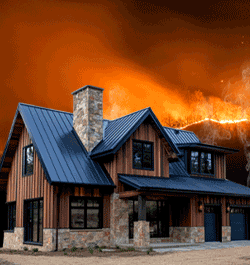

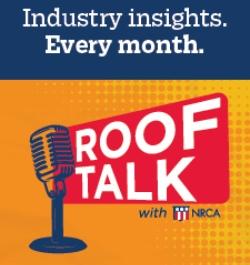









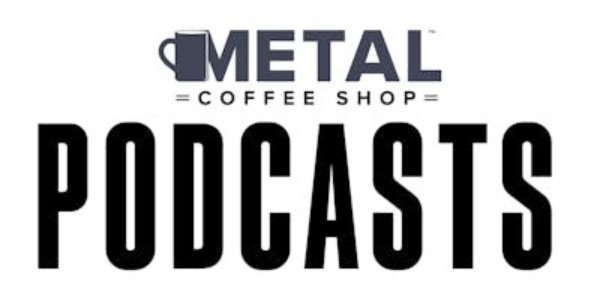

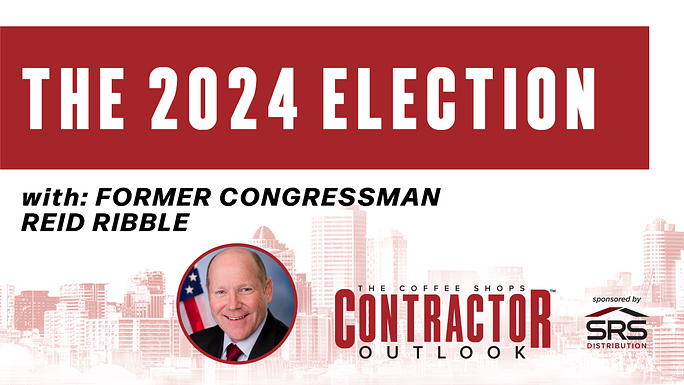


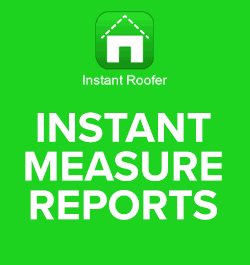


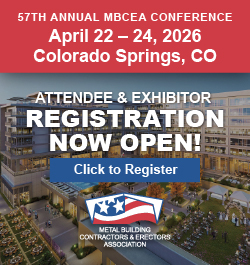
Comments
Leave a Reply
Have an account? Login to leave a comment!
Sign In